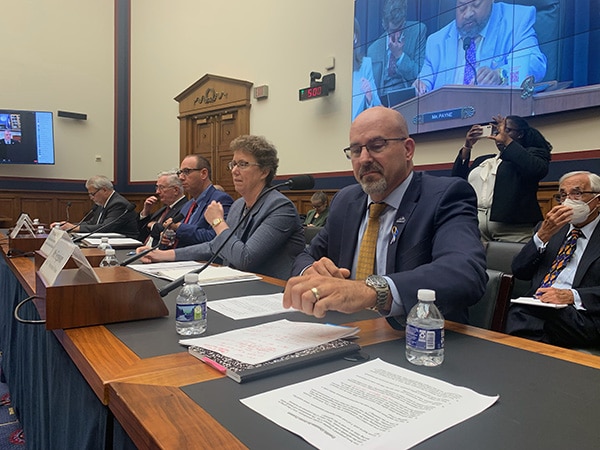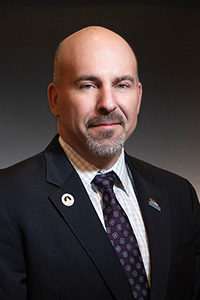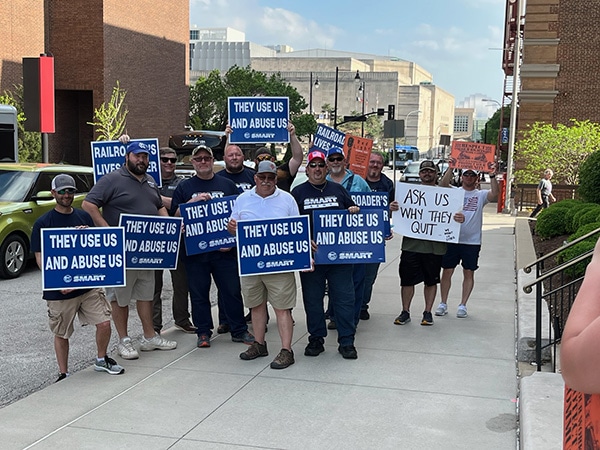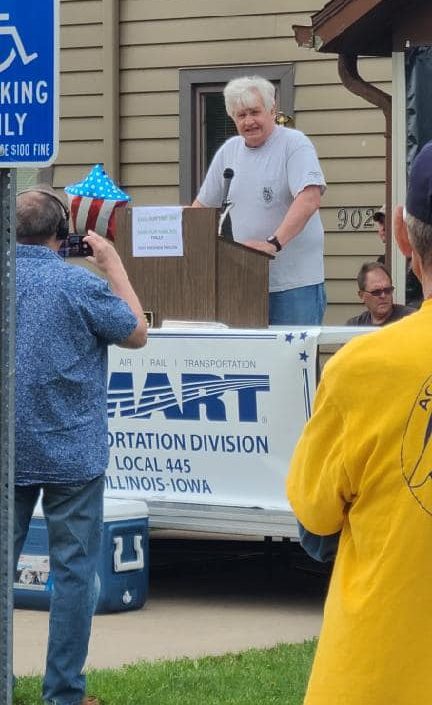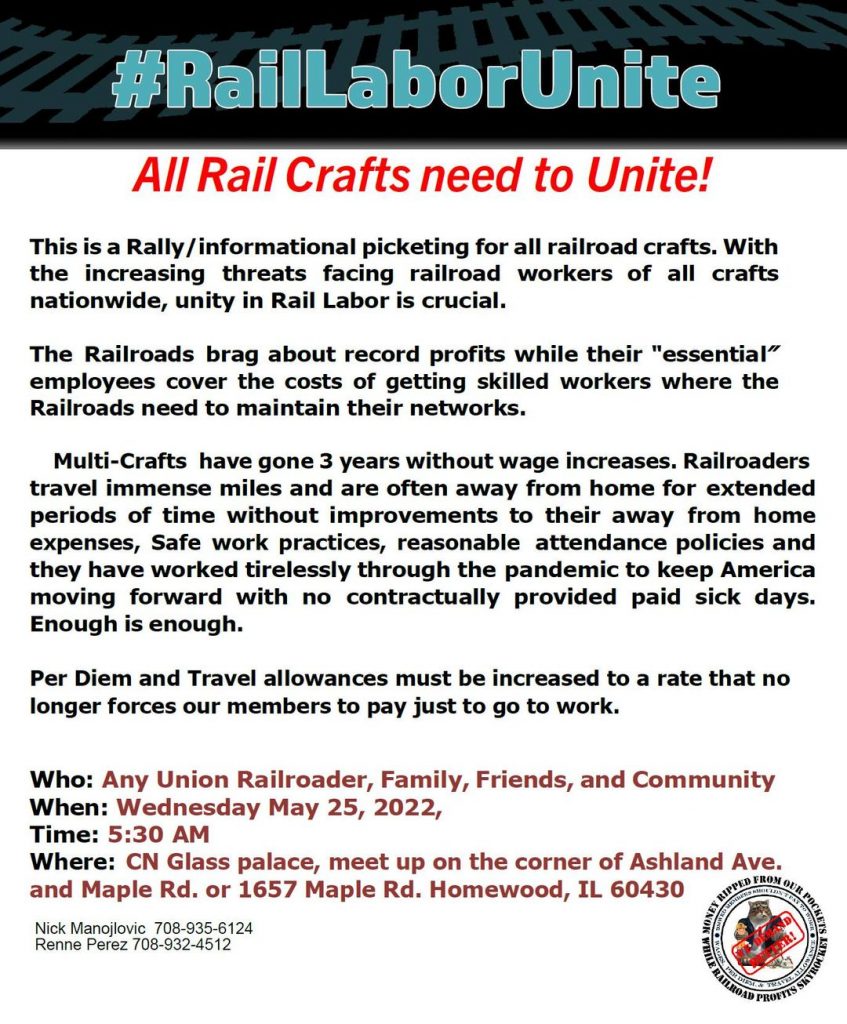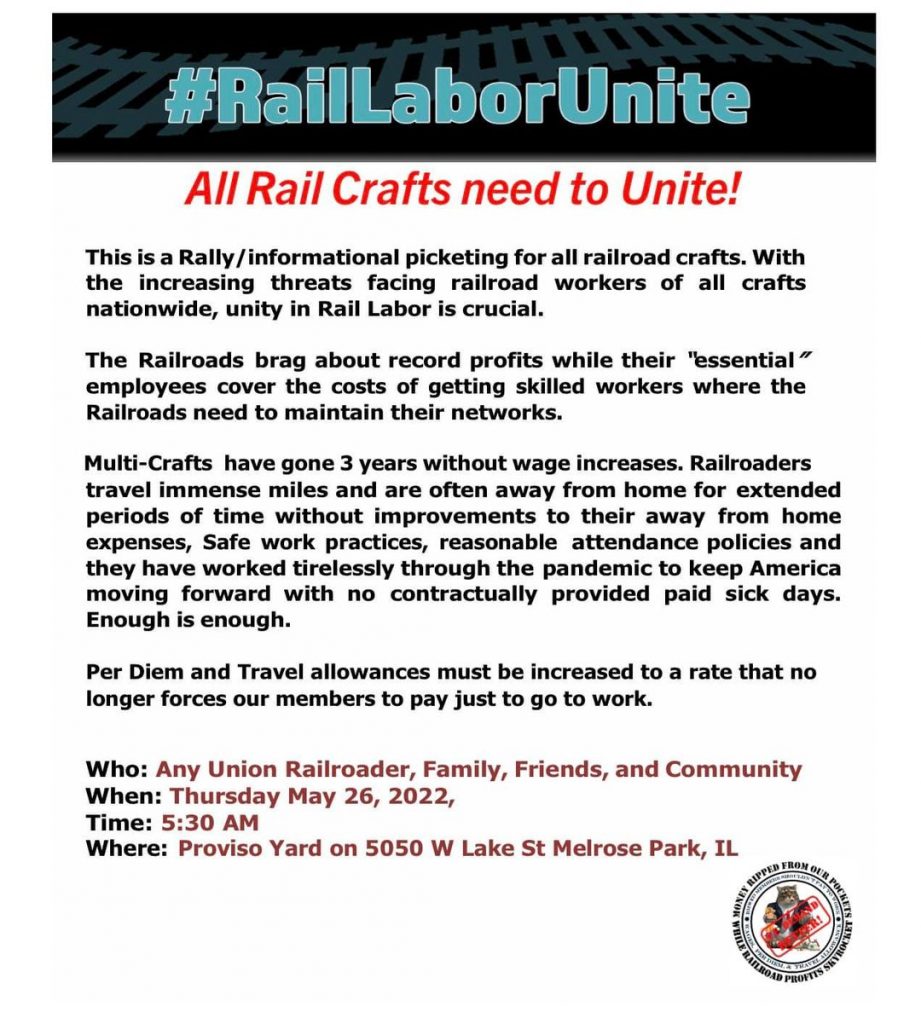The United Rail Unions issued the following statement July 15, 2022:
The Rail Unions who are bargaining as part of the Coordinated Bargaining Coalition and the Brotherhood of Maintenance of Way/SMART Mechanical Coalition attended the Public Interest Hearings hosted by the members of the National Mediation Board on Tuesday, July 12, 2022, and we thank the National Mediation Board for their efforts to help the parties reach a voluntary agreement. Unfortunately, the nation’s rail carriers continue to refuse to negotiate an agreement that our members would accept.
As a result, and as was expected, President Biden announced today that he is appointing a Presidential Emergency Board before the expiration of the cooling-off period at 12:00 a.m. on Monday, July 18, 2022. The Presidential Emergency Board will have thirty days to convene, hear the positions of the Unions and rail carriers, and issue recommendations for settlement of the dispute. A second thirty-day cooling off period will begin when those recommendations are issued.
The Rail Unions remain united in their efforts, and are now working together in preparation of a unified case representing the best interests of all rail employees before the Presidential Emergency Board. Our unified case will clearly show that the Unions’ proposals are supported by current economic data and are more than warranted when compared to our memberships’ contribution to the record profits of the rail carriers.
Additional information will be provided as developments warrant. We appreciate your continuing support.
###
The unions comprising the Coordinated Bargaining Coalition are: the American Train Dispatchers Association (ATDA); the Brotherhood of Locomotive Engineers and Trainmen / Teamsters Rail Conference (BLET); the Brotherhood of Railroad Signalmen (BRS); the International Association of Machinists (IAM); the International Brotherhood of Boilermakers (IBB); the National Conference of Firemen & Oilers/SEIU (NCFO); the International Brotherhood of Electrical Workers (IBEW); the Transport Workers Union of America (TWU); the Transportation Communications Union / IAM (TCU), including TCU’s Brotherhood Railway Carmen Division (BRC); and the Transportation Division of the International Association of Sheet Metal, Air, Rail, and Transportation Workers (SMART–TD).
The Brotherhood of Maintenance of Way Employes Division and SMART Mechanical Unions are also bargaining as a coalition.
Collectively, these Unions represent approximately 115,000 railroad workers covered by the various organizations’ national agreements, and comprise 100% of the workforce who will be impacted by this round of negotiations.


